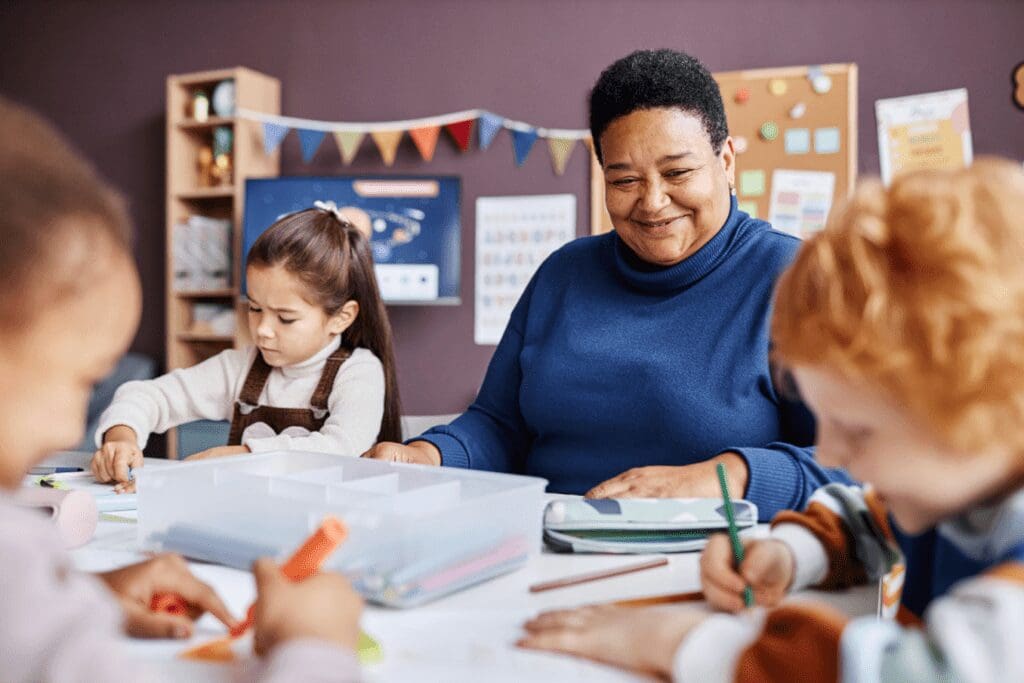Lesson observations are a core part of school improvement. Having colleagues or leadership observe your lessons is common in Australian schools as they can benefit both the school and the teachers.
They can be scary though. Having a member of leadership in your lesson and watching you teach fills many teachers with anxiety. Here are a couple of common questions and concerns that teachers have about lesson observations:
Do I need to participate in lesson observations?
If you haven’t moved from the Graduate to Proficient levels of the Australian Professional Standards for Teachers, you are going to need to do a formal lesson observation.
Lesson observations make up a key part of your portfolio of evidence. Many of the standards such as Use Teaching Strategies and Use Effective Classroom Communication are difficult if not impossible to provide evidence for without a lesson observation.
For these kinds of observations, you can choose who sits in on your lesson. If you want to become a Highly Accomplished or Lead Teacher, you’ll need to be observed by an assessor who is trained to judge your practice against these career stages.

What do I need to do if my lesson is being observed?
This will be entirely up to you and the person observing your lesson. You may decide that the observation will only be for a part of the lesson, or you may want to meet beforehand to go through your plan.
Lesson observations can happen for a variety of reasons. It’s important that the lesson observation suits the purpose. If you’re a new teacher and your line manager wants to check in on how you’re going, a short, informal lesson observation may be fine. If you want strong evidence of your practice for your portfolio, you may want to undertake a more formal and structured lesson observation to ensure that you get the best evidence possible.
Is it worth observing other teachers’ lessons?
It is absolutely worth observing your colleagues’ lessons. Teachers are time-poor, but watching someone else’s lessons opens up great conversations about teaching strategies and practice. It can help you give them some constructive feedback, or you could learn a thing or two!
As a school leader, I always encouraged new teachers to observe my lessons in their first week. They would see how I taught not only to get a few tips but to show them that I’m not perfect either. It puts new teachers at ease to get a feel for what is considered a typical lesson. It also makes it a lot less stressful when their leader needs to observe their lessons.

Where does the record of the lesson observation go?
Where the record of the lesson observation is stored or what it is used for depends on you and your observer. School leadership may need to use observation data as a part of their school improvement process, in which case you should be told beforehand. You may also want to use lesson observation data as a part of your portfolio against the APST.
What if I don’t want to do a lesson observation?
There are cases where you may be required to do a lesson observation. If your school needs observation data for administrative reasons or if you are being observed for performance management reasons, you will not be able to refuse.
The AEU has a policy around lesson observations. It acknowledges that lesson observations can be necessary, but that teachers are to have the power to determine who observes them and when, within reason.
Lesson observations make me anxious. What can I do?
If you’re anxious about a lesson observation, let your observer know. Tell them what you can each do to make the process as easy as possible.
You may want to only have the observer in your lesson for a short time to start with. You may want to meet with them beforehand to go through the process and explain your plans or meet afterwards to debrief.
If you are still uncomfortable with doing a lesson observation, ask if there is someone else who can observe your lesson. A colleague or another leader might be able to observe your lesson instead, depending on what the purpose of the observation is.



